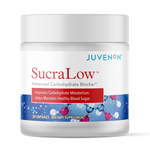
Load your body with a lot of nutrients by eating these delicious and nutritious fresh vegetables.
In this article:
Why Are Vegetables Healthy
4 Tips When Shopping for and Consuming Fresh Vegetables
12 Fresh Vegetables Your Body Deserves for Better Health
Why Are Vegetables Healthy
The next time you visit your grocery store, include these fresh vegetables on your list.
We all know that vegetables are good for health. What’s not to love?
They’re low in calories and sky high in vitamins, minerals, and fiber. But did you know that some veggies stand out from the rest for their additional health benefits?
Take a peek at this list and discover the top vegetables that you should include in your diet:
1. Spinach
This leafy green is a chart-topper, thanks to its impressive nutrient profile. It’s rich in antioxidants that may reduce risk factors such as high blood pressure.
2. Carrots
Peter Rabbit was right. This common vegetable is especially high in beta-carotene, which can turn into healthy vitamin A in the body.
Carrots’ high antioxidant content may help reduce the risk of lung and prostate cancer.
3. Broccoli
This cruciferous vegetable contains sulforaphane, a compound that may prevent cancer growth. Eating broccoli also helps reduce the risk of chronic disease by protecting oxidative stress.
4. Brussels Sprouts

Like broccoli, Brussels sprouts are a member of the cruciferous family of vegetables. They contain a specific antioxidant called kaempferol.
It may protect against oxidative damage to cells and prevent chronic disease. It may also help enhance detoxification in the body.
5. Kale
Like other leafy greens, kale is well-known for its health-promoting qualities. It is high in vitamins A, C, and K, as well as antioxidants.
Studies show that drinking kale juice could reduce blood pressure and LDL cholesterol while increasing HDL cholesterol.
6. Green Peas
Considered a starchy vegetable, peas have a greater amount of carbs and calories than other veggies.Nevertheless, green peas are incredibly nutritious. They contain plant compounds called saponins, which may have anti-cancer effects.
7. Asparagus
This spring vegetable is rich in several vitamins and minerals, making it a welcome addition to any diet. It is especially high in folate, which may prevent neural tube defects.
Test tube studies have found that asparagus can support liver function and reduce the risk of toxicity.
8. Green Beans

Green beans are fresh vegetables that go well with high-quality meats, and you can also include them in your salads.
Also known as snap peas or string beans, these are rich in protein, so they are filling. They are also quite high in fiber, which supports colon health.
Pregnant women or those trying to conceive may want to eat these fresh vegetables. They contain more than 8% of folate.
9. Celery
Celery is an excellent source for one of the essential water-soluble vitamins, vitamin C. A stalk contains dozens of different kinds of phytonutrients to help reduce the risks of chronic inflammation.
What are water-soluble vitamins? These are vitamins that dissolve in water. Excess of these vitamins doesn’t remain in the body.
It also has antioxidant properties, which help fight against free radicals. These are toxins that can lead to cellular damage.
10. Cabbage
One of the healthy vegetables to eat is cabbage. A cup of it provides your meal with 2 grams of fiber, a gram of protein, and not more than 25 calories.
You can also meet over 80% of your recommended daily intake for vitamin K and 54% of vitamin C when you eat cabbage. It also contains some amounts of folate, vitamin B6, and manganese.
11. Cauliflower
One of the best fresh vegetables, cauliflower contains a compound called sulforaphane, like its relative in the cruciferous family, broccoli.
A 2006 study showed it may help lower the risk of hereditary cancers.
12. Beet

There are many heart-healthy vegetables out there, and one of the best options you have is the beet. It has nitrate, a substance which helps bring down blood pressure.
It may then lower the risk of cardiovascular disorders since the cardiac muscle doesn’t have to work so hard.
The same substance can also increase athletic performance or endurance. It allows the mitochondria, the part of the cell which generates energy, to function more efficiently.
Nitrates, however, tend to stay high only for a few hours. To maximize the benefits of beets, you can consider complementing these fresh vegetables with supplements like BloodFlow-7.
4 Tips When Shopping for and Consuming Fresh Vegetables
This list of healthy vegetables should help make shopping in grocery stores easier and faster. To be sure you can benefit from their vitamins and minerals, you need these tips:
1. Check the Freshness of the Veggies
Even the likes of Dole fresh vegetables don’t stay fresh for weeks. Usually, fresh produce lasts for only a few days from the time growers harvested them.
It is for this reason you cannot buy them in bulk unless you plan to meal prep or cook them in batches and save the rest in the fridge or freezer.
hen shopping, these fresh fruits and vegetables may be in the colder sections. That’s not an assurance the produce is still fresh.
How do you know those dark leafy greens are worth avoiding? You can use your senses:
- How do they smell? If they already smell too bitter or foul, you should avoid them.
- What do they look like? The vegetables are probably not fresh anymore if the leaves are already wilting, or there are a lot of brown or black spots.
- How do they feel to the touch? Healthy vegetables are not slimy.
2. Store Them Correctly
Your fresh vegetables may also achieve a long shelf life and maintain their taste when you know how to store them. It’s simplest to wrap those green giant fresh veggies in a paper towel and place it inside a sealed plastic bag.
The towel removes any moisture in the leaves that may cause them to wilt fast. The plastic bag, meanwhile, prevents moisture from getting in.
For the likes of fresh carrots, you can put them directly inside tightly closed or sealed plastic bags. Do not wash your veggies if you plan to store them.
Canning and freezing are also some popular ways to preserve fresh vegetables for future use. This is especially necessary when you love to eat off-season produce.
Contrary to popular belief, veggies such as frozen peas are not necessarily less healthy than the fresh ones. In fact, they can still retain their nutritive value.
3. Learn the Proper Way of Cooking Them

Healthy green vegetables may have lots of vitamins and minerals, but your manner of cooking may only reduce their benefits.
One of the effective techniques to retain as many nutrients is to use only a small amount of water. For example, you can blanch them.
Blanching involves cooking fresh vegetables in boiling water for at least a minute. Then, you remove them from the heat and place them in a bowl of ice to stop the heating or cooking process.
Another option is to steam the vegetables, especially if they are hard or crunchy such as fresh carrots, broccoli, and cauliflower.Lastly, there’s stir-fry, where you mix the veggies in a wok with a small amount of olive oil and chopped meat. This method is ideal for green leafy vegetables like spinach and beans or snap peas.
4. Consider Variety
When it comes to healthy eating, it should not just be about the fruit or vegetable. Instead, it should be about fresh fruit and vegetables.
Mixing fruits and veggies, along with some other sources of protein and healthy carbs like corn, ensures you’re getting more complete nutrition in every meal.
To stay healthy, do what experts suggest: eat your vegetables, fresh and frozen. When you can, however, prioritize fresh vegetables that may hold the highest amount of nutrients.
Editor’s Note: This post was originally published on September 6, 2019, and has been updated for quality and relevancy.






















